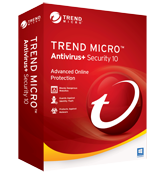Share your valuable feedback, comments or suggestions on Secure Internet Browsing
Secure Internet Browsing
Primary Work Tool – Secure Internet Browsing
 Browsers are valuable in accessing applications and information and performing day-to-day activities. The most commonly used browsers include Mozilla Firefox, Google Chrome, and Internet Explorer. The user uses cloud applications that can run from anywhere and anytime and are accessible via a browser, e.g. Microsoft Office 365, Salesforce CRM applications, and the Zoho One Business Suite. They access them through various browser-enabled devices like smartphones, laptops, PCs and others. They don’t need to install additional components to access applications or data.
Browsers are valuable in accessing applications and information and performing day-to-day activities. The most commonly used browsers include Mozilla Firefox, Google Chrome, and Internet Explorer. The user uses cloud applications that can run from anywhere and anytime and are accessible via a browser, e.g. Microsoft Office 365, Salesforce CRM applications, and the Zoho One Business Suite. They access them through various browser-enabled devices like smartphones, laptops, PCs and others. They don’t need to install additional components to access applications or data.
Nowadays, browsers are supplemented by operating system resources and software applications like Java and Adobe Flash Player. The HTML5-enabled browser handles everything, eliminating the need for Flash, Java and other add-ons and software components to interact with system resources.
We assume they are the most secure web browsers that block advertisers and maintain privacy by not sharing information with companies or the government.
How do you make internet browsing safe and secure?
- Padlock icon: A small icon on the top of the browser.
- Close represents that the session is secure
- Broken or exclamation mark shows vulnerability to adversaries
- Encrypted Communication: Download, install and activate HTTPS Everywhere plugin from Electronic Frontier Foundation (EFF). Most browsers warn a user whenever SSL is not installed on a website.
- Install and Activate WOT (Web of Trust) or Calling-ID to check the website’s or link’s trustworthiness.
- Use portable apps when browsing from public computers. Mobile apps run on the host computer without being installed.
- Mobile Anonymous Browsing: On Android, install the Orbot and Orweb apps, which funnel and encrypt the traffic through the Tor network. On iOS-enabled iPhones or iPads, use Onion Browsers for anonymous browsing.
- Use VPN (Virtual Private Network) Services to hide an IP (Internet Protocol) address with a fake one. A good quality VPN may include features like multiple hops, i.e. bouncing traffic between distant geographic locations or out-of-band authentication that does not break anonymity.
Web Browsers – Safe and Secure Internet Browsing
Mozilla Firefox
- Free, open-source
- Its version, Tor Browser Bundle, is customized to use an anonymous network, which hides users’ IP addresses and locations.
Chrome’s browser Incognito mode
Google Chrome, Internet Explorer and Safari share user information with the government




You must be logged in to post a comment.